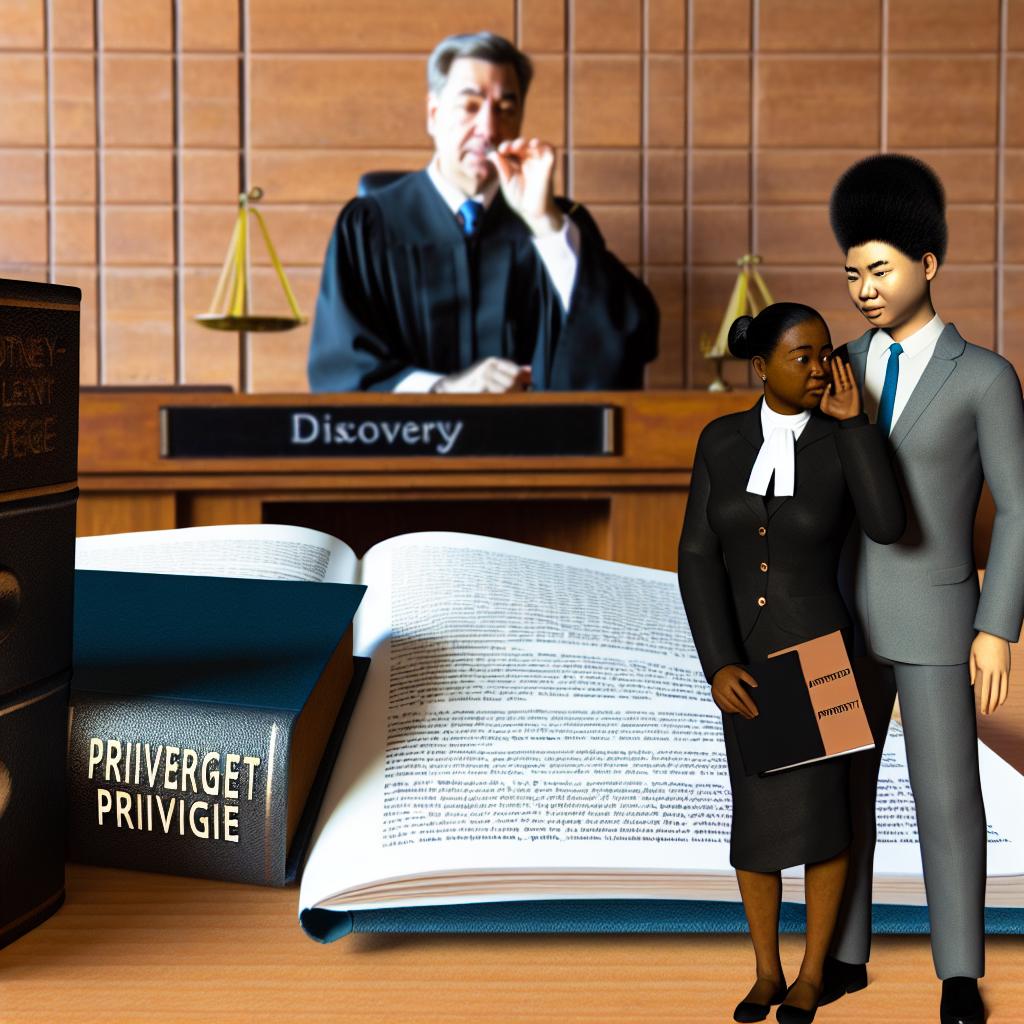Understanding Attorney-Client Privilege
Attorney-client privilege is a vital legal concept that acts as a safeguard for communications between a client and their attorney. This privilege is a cornerstone of the legal profession, designed to ensure that clients can communicate with their lawyers openly and honestly without the risk of those discussions being disclosed to outside parties. Through this mechanism, the legal system acknowledges the importance of confidentiality in fostering an environment where clients can seek legal advice without reservation.
The Scope of Attorney-Client Privilege
The attorney-client privilege encompasses both oral and written communications. To be covered by this privilege, the client must be actively seeking legal advice from an attorney who is operating in their professional legal capacity. This protection is inherently designed to benefit the client, allowing them to discuss their legal issues or questions with their attorney without fear that this information will inadvertently be shared with third parties or used against them in legal proceedings.
Exceptions to the Privilege
Despite its broad protections, the attorney-client privilege is not absolute. There are specific scenarios where this privilege does not apply:
1. Crime-Fraud Exception: Communications that pertain to future criminal activities or ongoing fraud are not protected by this privilege. This exception prevents individuals from misusing the privilege to conceal illegal activities.
2. Waiver by the Client: The privilege can be waived if the client, either deliberately or accidentally, discloses privileged information to a third party. Once the privilege is waived, the disclosed information may no longer be protected.
3. Dispute Between Attorney and Client: If a dispute arises between a client and their attorney, such as disagreements over fees, communications relevant to the dispute may not be protected under the privilege.
Discovery in Legal Proceedings
Discovery is a fundamental phase in legal proceedings that involves the exchange of information and evidence between parties involved in a case. Designed to facilitate transparency and prevent surprises during trial, the discovery process ensures that all parties have access to relevant information, thereby promoting fairness in the judicial process.
Types of Discovery
The discovery process encompasses a range of methods to obtain evidence and information. These include:
– **Depositions**: Oral questioning of a witness or party to gather testimony before the trial.
– **Interrogatories**: A set of written questions that one party sends to another, requiring written responses under oath.
– **Requests for Production of Documents**: Demands for specific documents or evidence relevant to the case.
– **Requests for Admissions**: Requests for a party to admit or deny certain facts, helping to narrow down the issues for trial.
Interaction with Attorney-Client Privilege
During the discovery phase, conflicts frequently arise regarding attorney-client privilege. One party may request information or documents that the opposing party claims are protected by this privilege. In such instances, the court is often called upon to determine whether the privilege applies to the contested materials.
Challenges in Balancing Privilege and Discovery
The delicate balance between full discovery and upholding attorney-client privilege presents a challenge for the courts. The court must decide whether the privilege legitimately shields the requested information from disclosure. To assert the privilege, the party invoking it typically provides a privilege log, which outlines the nature of the protected communications or documents without disclosing their contents.
Significance in Legal Practice
Understanding the interaction between attorney-client privilege and the discovery process is of paramount importance for legal professionals. While the privilege plays a critical role in preserving client confidentiality, the discovery process is essential for ensuring transparency and fairness in legal proceedings. Navigating these components requires legal professionals to carefully balance the need for information disclosure with the need to protect privileged communications.
In summary, attorney-client privilege is a foundational principle in the legal field that assures clients of confidentiality when seeking legal counsel. The discovery process complements this by allowing an exchange of information, ensuring that all parties involved in a case have equal access to evidence. The ongoing challenge lies in maintaining this balance, where justice is served through open access to information, while the rights of clients to maintain confidential communications with their attorneys are simultaneously protected.
